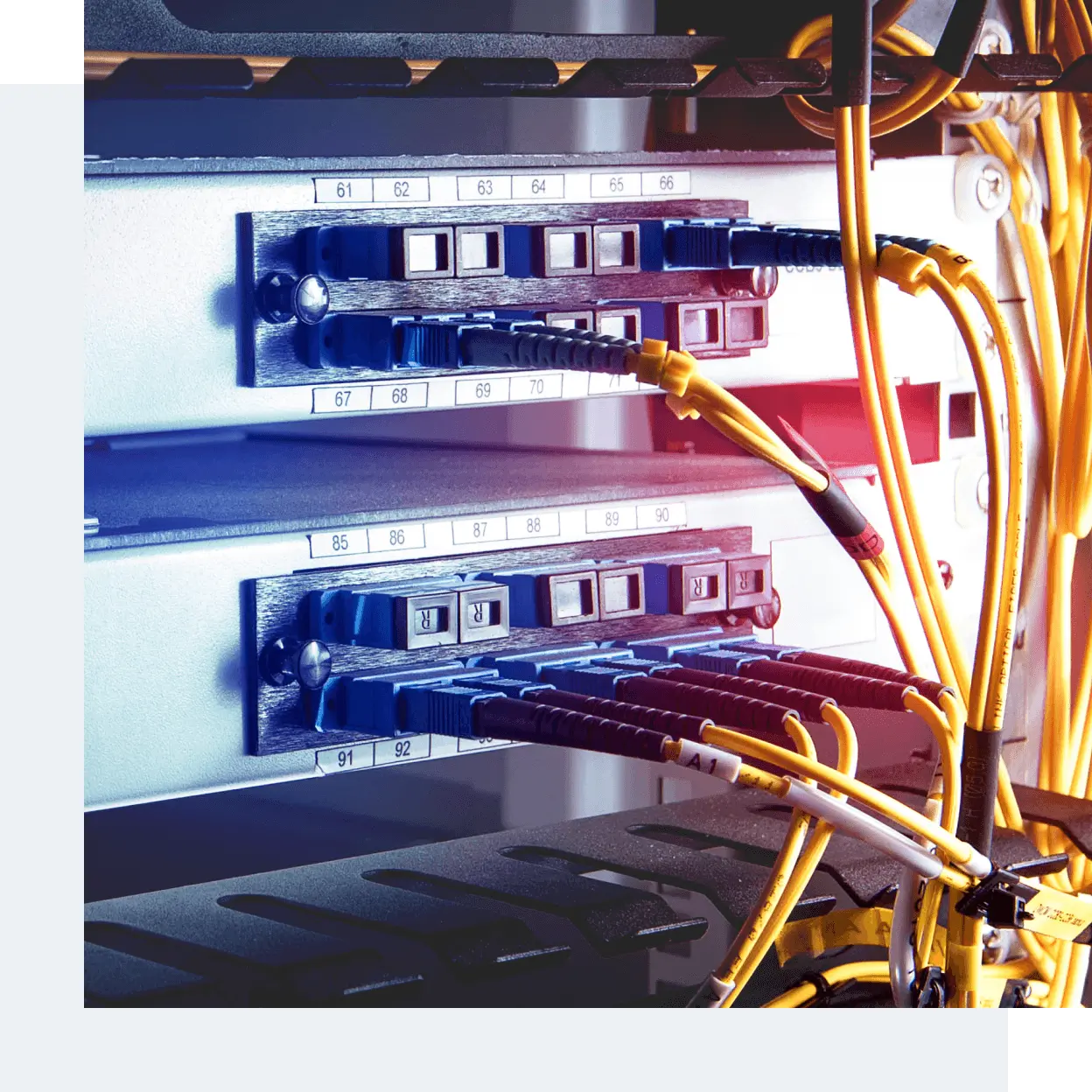By Nirmal John
How to Choose the Best Storage Provider for Your Needs in 2025
Friday March 28, 2025

How to Choose the Best Storage Provider for Your Needs in 2025
Finding the right storage system service can feel overwhelming, especially with so many options on the market. Whether you’re managing personal files or running a business, making the wrong choice can lead to wasted money, security risks, or limited scalability. The good news? There’s a storage solution for every need. From budget-friendly plans to highly secure enterprise systems, understanding your priorities—like cost, performance, and accessibility—will make the decision much clearer. Let’s break it down so you can pick the best storage provider for your needs with confidence.
Understanding the Different Types of Storage System Services
Choosing the right storage provider is like picking the perfect toolbox—it needs to fit your specific tasks and long-term needs. Whether you’re an individual navigating personal storage options or a business embarking on data management strategies, knowing what each type of storage service offers is critical. Let’s explore the pros and cons of the primary storage solutions available today.
On-Premises Storage
On-premises storage solutions are exactly what they sound like—hardware storage systems located on-site at your office or home.
Benefits:
Full Control: When storage is physically with you, you’re in charge. You decide how your data is stored, who accesses it, and how it’s backed up.
High Security: Nobody can access your storage remotely unless allowed, reducing external threats compared to cloud-based solutions.
Customization: Tailor the setup to your specific requirements, from the choice of hardware to how it’s integrated with your systems.
Challenges:
Upfront Costs: Between the hardware and installation, the initial costs can be significant. Expanding capacity later can also be expensive.
Maintenance: You’re responsible for maintaining the hardware, which includes addressing failures, updates, and security protocols.
Scalability: If your data needs grow, scaling up means buying more hardware, which isn’t always efficient.
Network-Attached Storage (NAS) – GigeVault
Network-Attached Storage (NAS) is a device that connects to your network, allowing multiple users or devices to access and share files conveniently. GigeNET’s GigeVault solution provides NFS connectivity that lets you connect your dedicated and virtual servers to a centralized storage system.
Why NAS Stands Out:
Great for Collaboration: If your team or family frequently shares files, NAS offers centralized access and simplifies collaboration.
Budget-Friendly for SMBs: Small to medium-sized businesses often go for NAS because it’s cheaper than other enterprise systems while meeting shared storage needs.
Automatic Backups: Many NAS systems come with built-in backup features, reducing the risk of data loss.
Near-Limitless Scalability: GigeVault is built on an industry-leading storage architecture that allows for exceptional scalability while keeping costs down.
Same-Location Hosting: With GigeNET, your file storage is hosted in the same data center as your virtual and dedicated servers, ensuring optimal performance.
Downsides:
Performance Issues: If your network gets crowded with heavy usage, NAS performance can slow down. Bandwidth is key here.
Scaling Challenges: While expandable to a degree, some NAS solutions don’t scale as effortlessly as cloud-based options (though GigeVault addresses this challenge).
Limited Mobility: Remote file access often comes with added complexity compared to cloud storage.
Storage Area Network (SAN) – iSCSI Solutions
Storage Area Networks (SAN) are best for enterprises that manage large-scale, data-heavy operations. A SAN essentially creates a network of storage devices accessible to multiple servers. GigeNET offers iSCSI solutions, an IP-based standard for transferring data that supports host access by carrying SCSI commands over IP networks.
Why SAN Is Powerful:
High Performance: Engineered for speed, SAN handles demanding environments where quick access to large datasets is a must.
Centralized Management: Large organizations benefit from streamlined control over storage resources.
Efficient Data Transfers: Optimized for massive workloads like databases and virtualization.
Well-Defined Framework: GigeNET’s iSCSI implementation ensures your data moves through networks with properly configured protocols for optimal transfer.
What to Keep in Mind:
Cost-Intensive: SAN systems are pricier than most storage options, both in hardware and infrastructure.
Specialized Expertise: Setting up a SAN requires skilled system administrators who understand its intricacies (GigeNET’s engineering team can help with this).
Complex Installation: Implementation takes time and dedicated planning, making it less flexible for rapidly changing needs.
By understanding the different types of storage system services, you can confidently choose a storage provider that aligns with your needs in 2025. Whether you prioritize control, collaboration, performance, or scalability, there’s a solution that fits your requirements.

Cloud Storage – Block Storage (Ceph)
Cloud storage is perhaps the most flexible and widely used storage system service. It allows you to store your data on remote servers that are accessible over the internet. GigeNET offers Block Storage based on Ceph, an open, scalable, and simplified solution for your applications.
Why People Love It:
Scalability: Expand your storage needs on-demand without buying physical hardware. GigeNET’s Block Storage solution is specifically designed for businesses needing excellent scalability in storage system services.
Accessibility: Access your files anytime, anywhere, as long as you’re connected to the internet.
Lower Entry Costs: Most providers offer free plans or affordable tiers that let you start small and grow as needed.
Automatic Backups & Syncing: Modern cloud platforms often include tools for real-time synchronization and backup, making data management seamless.
Simple Installation: GigeNET’s Block Storage solution offers straightforward implementation along with safety and protection features.
Support for Emerging Workloads: Ideal for businesses with evolving technology needs and new application workloads.
Watch Out For:
Vendor Lock-In: Switching providers can be tricky due to data transfer complexities or proprietary systems. Think of it as being “stuck in a contract.”
Potential Costs: While initial costs are low, long-term expenses can pile up, especially if you need lots of storage or advanced features.
Privacy Concerns: Despite improvements, some businesses and individuals feel uneasy relying on third parties for sensitive data storage system services.
Each of these storage options has unique strengths and weaknesses. Think about your budget, data needs, and whether you need robust control, simple access, or seamless scalability. This knowledge will help you move forward with confidence.
Key Factors to Consider When Choosing a Storage Provider
Choosing the right storage system service provider isn’t just about picking a well-known name or the cheapest plan. It’s about understanding your specific needs and aligning them with what a provider offers. Every detail matters when safeguarding your data and ensuring seamless operations, from scalability to cost considerations. Below, we’ll explore the most critical factors you need to assess before making a decision.
Scalability and Future Growth
As your data grows, your storage system service should grow with it. Scalability ensures that you’re not locked into a rigid system that can’t keep up with changing demands.
Think about it: if you run out of storage space, would it take hours, days, or weeks to expand capacity? Storage systems designed with scalability prioritize flexibility. This is especially crucial for businesses expecting rapid growth or seasonal data surges. Whether through simple subscription upgrades in a cloud system or modular expansion in a hardware setup, scalability saves time and prevents operational bottlenecks.
Future-proofing is equally important. What’s useful today might be obsolete in five years. Consider whether the provider offers updates, compatibility with emerging technologies, and support for diverse workloads. GigeNET’s solutions like GigeVault and Block Storage are built with scalability as a core feature, allowing businesses to expand their storage system services without significant disruption.
Security and Compliance
Data security is non-negotiable. Your storage system service provider should act like a digital fortress, protecting against breaches and unauthorized access at every level.
Here are security essentials to look for:
Data Encryption: Make sure all data is encrypted, both at rest and in transit.
Access Control: The provider should offer multi-factor authentication (MFA) and permission hierarchies, so only authorized users can gain access.
Regular Security Audits: An accredited, reliable provider will undergo routine audits to maintain high security standards.
Compliance is another layer of security to consider. Regulation like GDPR, HIPAA, or CCPA might apply depending on your industry or location. Ask potential providers about their compliance certifications. This not only keeps you legally protected but also assures your clients that their data is in safe hands.
Performance and Accessibility
Imagine you’re in the middle of a time-sensitive project, and your storage system service slows down. Performance hiccups like this are costly in terms of productivity and frustration.
High-speed access and latency depend largely on the architecture and infrastructure of the provider. Check whether their service is designed for consistent, fast performance under heavy loads. Businesses that deal with large volumes of real-time data should seek providers with guaranteed service-level agreements (SLAs) for performance.
Accessibility is just as important. Your team—or even your personal devices—should have 24/7 access to stored data, no matter where they are. Cloud-based systems excel here, but always ensure that offline access or backup features are available when needed.
GigeNET addresses performance concerns by hosting your file storage in the same data center as your servers, minimizing latency and maximizing throughput. Their engineering team is also always available to answer technical questions and provide expert support.
Cost and Total Cost of Ownership (TCO)
The price tag on a storage system service plan is just the tip of the iceberg. True costs include setup, maintenance, scaling, and even switching providers down the line.
When evaluating options:
Upfront Costs: For on-premises solutions, hardware and installation costs can be significant. Cloud solutions often have minimal upfront fees but…
Ongoing Costs: Subscription-based models can quickly add up if usage exceeds plan limits. Evaluate these carefully to avoid surprises.
Hidden Fees: Does the company charge extra for retrievals, migrations, or scaling? Always read the fine print.
Understanding the Total Cost of Ownership (TCO) is about balancing upfront savings with long-term expenses. Sometimes, investing slightly more upfront leads to lower costs over time, especially with scalable and low-maintenance storage system services providers. Always align your budget with your performance and security needs.
Expert Support Makes the Difference
Beyond the technical specifications and features, the quality of support can make or break your storage system service experience. GigeNET stands out with its proven history of providing quality service and technical expertise. Their engineers are always available to answer questions and have the technical knowledge to explain even the most complex details.
When evaluating a storage system service provider, consider:
Technical Expertise: Do they understand both your business needs and the technical aspects of storage?
Availability: Can you reach support when you need it most?
Proactive Service: Do they anticipate potential issues before they become problems?
By carefully examining these factors—scalability, security, performance, total cost, and support quality—you can make a confident choice in a storage system service provider that truly aligns with your needs.
For businesses looking for reliable, scalable storage system services with expert support, contact GigeNET or call (800) 561-2656 to discuss your specific requirements.
About the author
Recent articles
Quad Core Dedicated Servers
Interested in Quad Core Dedicated Servers? View our inventory. What is a quad core dedicated...
Read More8 Core Dedicated Servers
For website owners looking to eliminate their hardware bottlenecks, the massive power capabilities of an...
Read MoreHow Unmetered Servers Can Help Businesses Grow
If you have a business website that is growing and expanding, it is essential that...
Read More